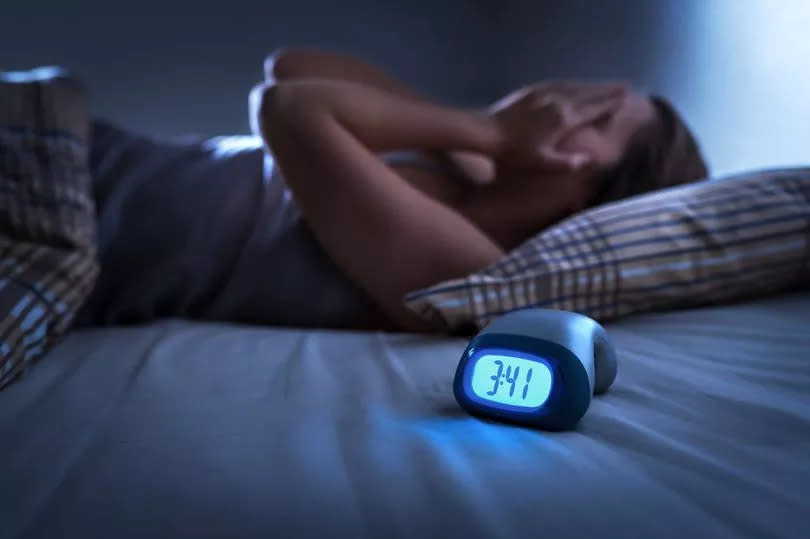Dr Michael Mosley says one simple diet switch could 'fix sleep problems'
Dr Michael Mosley, a renowned diet and health expert, has suggested that a simple diet change could be the solution for those struggling with sleep issues.
Writing on his Fast800 blog earlier this year, he proposed that "the answers may lie in your diet" for those finding it hard to get a good night's rest.
He has linked the practice of intermittent fasting with improved sleep. This is a dietary approach where you restrict yourself to eating only at specific times of the day, fasting for the rest.
Dr Mosley stated: "switching up your eating pattern might just fix your sleeping pattern". He highlighted that a significant number of adults - 71 percent to be precise - don't achieve the recommended seven to nine hours of sleep.
He also emphasised that quality sleep depends on three factors - duration, uninterrupted sleep quality, and a consistent schedule, reports Gloucestershire Live.
In his blog post, he explained: "If you optimise all three, you're onto a winner". The benefits he listed included enhanced concentration, attention and decision-making abilities; processed memories and reduced risk of dementia; supported immune system and heart, reducing the risk of heart disease; restored insulin sensitivity and reduced risk of type 2 diabetes and lowered hunger hormone, ghrelin, reducing the risk of obesity by 41 percent.
Intermittent fasting and sleep
Dr Mosley says there are several different studies that show a positive link between intermittent fasting and sleep.
He penned: "A 2003 study measured participants' sleep using a polysomnography before and after just seven days of fasting. The results indicated that fasting short-term can improve sleep quality by reducing restlessness, awakenings during the night and leg movement during sleep. This was in addition to daytime improvements in concentration and emotional balance.
"Similarly, a 2019 study by the Salk Institute found that a 10-hour eating window for overweight participants saw reductions in blood sugar levels, blood pressure, waist size, as well as longer and less interrupted sleep. In general, overeating during the day and too close to bedtime has been shown to compromise healthy sleep".

"This can result in a vicious cycle of poor sleep leading to poor diet choices and so on. However, going to sleep on a relatively empty stomach (which happens when you extend your fasting window), allows your digestive system to align with your brain and both clock off for sleep, helping improve decision-making and reduce the hunger hormone, ghrelin. Furthermore, intermittent fasting has been shown to raise the levels of the sleep-promoting hormone, melatonin, which helps you fall asleep quicker and stay asleep longer."
What is intermittent fasting?
While saying that there were "multiple methods of intermittent fasting", Dr Mosley said two in particular were most popular on The Fast 800 Programme.
The first is TRE - time-restricted eating - where you consume your daily intake of calorie during a reduced time window. This could be the 12:12 method - eating within 12 hours, fasting for 12 hours - the 14:10 or the 16:8, with the latter having the shortest eating window of eight hours.
The second is the 5:2 method. This looks at days rather than hours and those taking part consume a restricted 800 calories on two days - known as fasting days - and consume a balanced diet on the other five days.
Dr Mosley recommended a Mediterranean-style diet for "maximum benefits".
How to do intermittent fasting
According to the TV doctor, there are a few things to keep in mind when you begin your intermittent fasting journey.
One of the most important things is to stay hydrated, drinking plenty of water as this will also help you sleep too. Herbal teas are also an excellent option, as these can help to curb sugary cravings.
It's also vital to ensure you're packing enough protein into your diet. This essential macronutrient helps to maintain muscle as well as keeping you fuller for longer, so you should aim to be eating at least 60g per day.
Join the Daily Record's WhatsApp community here and get the latest news sent straight to your messages.

 Yahoo News
Yahoo News 
